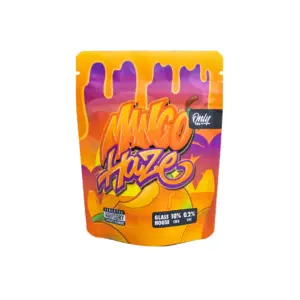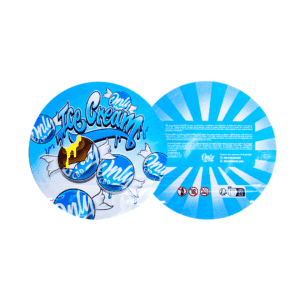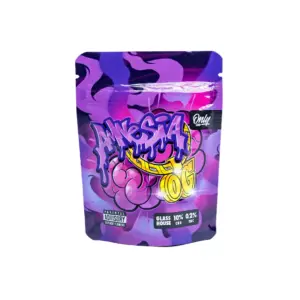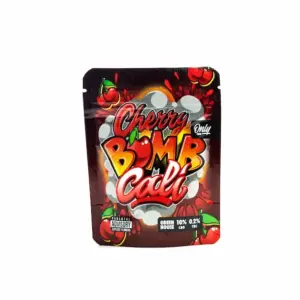What do we really know about the relationship between cannabis and sex?
From suppositories and lubricants to massage oils and vape pens, there's no shortage of cannabis products on the market that purportedly boost libido. And there's no shortage of claims about how cannabis can improve pleasure and enhance our sex lives.
A study from Stanford University generated headlines in 2018, revealing that regular cannabis users have 20 percent more sex than non-cannabis users. Furthermore, according to several surveys, cannabis users not only have more sex, but also have better sex. This could have significant implications for the treatment of common sexual problems that affect a large portion of the population.
The Cleveland Clinic informs That problems with sexual function affect 43 percent of women and 31 percent of men in the United States. As things stand, effective treatments for sexual disorders are woefully inadequate. If cannabis could help with sexual function and performance issues—from low libido and vaginal dryness to premature ejaculation and inability to achieve orgasm—it would be the remedy millions have been waiting for.
A mix of studies suggests interesting connections between sex and cannabis, a connection that deserves further investigation.
Despite the many claims about cannabis and sex, there is currently no clinical research demonstrating that cannabis has a direct influence on sexual experience. Official barriers to researching the plant, and the extremely nuanced and complicated science of sexuality, have thwarted efforts to study the relationship between cannabis use and sexual function.
So, we don't have any double-blind, randomized, placebo-controlled trials on the effect that cannabis—or any single plant component, such as CBD (cannabidiol) or THC (tetrahydrocannabinol)—has on the sexual experience. What we do have, however, is a mix of animal studies, surveys, and related research that make some interesting connections between the world of sex and the world of cannabis—connections that are compelling enough to warrant further consideration.
IS CANNABIS AN APHRODISIAC?
Cannabis has been used as an herbal aphrodisiac for thousands of years. To cite just one example, practitioners of Ayurvedic medicine in ancient India often recommended cannabis to enhance sexual performance and male virility. A review article in BioMed Research International, citing historical data in a section on "Ayurveda and the Concept of Aphrodisiacs," referred to cannabis as a plant that delays ejaculation and improves ejaculatory function.
It seems that humans have been combining cannabis and sex, with positive results, for quite some time. But it wasn't until relatively recently that academics began to focus on this area.
A 1979 survey indicates that experienced cannabis users believed the plant enhanced orgasm and should be considered an aphrodisiac.
A 1979 study in the Journal of Clinical Psychology was one of the first peer-reviewed articles to reveal substantial evidence of a link between cannabis and sexual functioning. Eighty-four graduate students were asked about their experience with cannabis and sex; the results showed that "experienced cannabis users" believed the plant enhanced orgasm and should be considered an aphrodisiac.
As the authors (Dawley et al) concluded: "The implication is that there may be value in investigating the use of marijuana in the treatment of sexual disorders."
Similarly, a series of anonymous questionnaires administered to college students in 1984 showed that more than two-thirds reported greater sexual pleasure and satisfaction with cannabis use. Published in the Journal of Sex Research, this study also found that "the majority had used marijuana as a preparation for sexual intercourse occasionally, and 20% did so regularly."
In fact, most of what we know about cannabis and sex has been gathered through surveys. This is problematic since surveys rely primarily on a person's memory. Survey responses are highly subjective: "enjoyable sex" could mean many different things depending on the individual.
THE ENDOCANNABINOID SYSTEM AND SEX
Why does cannabis lend itself so well to sexual intimacy?
According to a report A 2017 study by Czech psychopharmacology scientists found that cannabis stimulates a part of the brain called the nucleus accumbens, which also plays an important role in controlling sexual arousal. Also known as the brain's pleasure center, the nucleus accumbens is densely populated with CB1 cannabinoid receptors, which are activated directly by THC and indirectly by CBD.
CB1 receptors are part of what scientists call the endocannabinoid system (ECS), the master regulatory mechanism in the brain and body that balances many physiological processes and mediates how we experience the effects of cannabis.
Cannabinoid receptors are found in the organs that produce sex hormones, as well as in the reproductive organs.
It turns out there's an overlap between the ECS and the physiology of sexual function. For starters, cannabinoid receptors are found in organs that produce sex hormones, as well as in the reproductive organs themselves. receivers Cannabinoids are also present in the axon terminals of dopaminergic and serotonergic neurons, which play an important role in sexual function and interact with testosterone, estrogen, and oxytocin to modulate sexual response. The ECS influences the ebb and flow of several hormones and neurotransmitters.
Italian scientist Mauro Maccarone has described the ECS as "the guardian angel" or "guardian" of mammalian reproduction. Extensive preclinical research has established that cannabinoid receptor signaling is involved in every stage of the reproductive process, from sexual arousal to climax, from fertilization to embryo implantation, and throughout fetal development.
AROUSAL AND ORGASM
A 2012 study by American and Canadian researchers shed additional light on the connection between the ECS and sex. The authors (Klein et al.) measured serum concentrations of the endocannabinoids 2-AG and AEA (the marijuana-like compounds in the brain) in 21 healthy women before and after watching neutral and erotic film stimuli. Sexual arousal was also measured using vaginal photoplethysmography, a technique that allows you to observe volumetric changes in an organ or body.
Another device, called an "arousometer," measured continuous subjective arousal throughout the duration of the film.
The findings of this experiment were published in the Journal of Sexual Medicine. The authors observed a direct correlation between circulating endocannabinoid levels and sexual arousal in women: AEA concentrations decreased significantly as female sexual arousal increased, and 2-AG concentrations were also “significantly, negatively, correlated with increased perceptions of physiological sexual arousal, overall subjective sexual arousal, and increased ongoing subjective sexual arousal.”
When arousal culminates in climax, our endocannabinoid levels suddenly increase, according to a 2017 paper titled “Masturbation to orgasm stimulates the release of the endocannabinoid 2-arachidonoylglycerol in humans.” In this report, a team of German scientists noted that “endocannabinoids are critical for rewarding behaviors such as eating, physical exercise, and social interaction,” as well as sexual pleasure. Published in the Journal of Sexual Medicine, the results of this single-blind, randomized study showed that 2-AG is released after climax and “may play a role in the rewarding consequences of sexual arousal and orgasm.”
According to a 2019 survey of 373 women published in Women's Sexual Health, more than half of those who had used marijuana before sex reported increased sex drive and better orgasms. Similar findings were highlighted in a 2019 review article, titled “Effects of Cannabinoids on Female Sexual Function,” co-authored by Becky Lynn, MD, an assistant professor in the Department of Obstetrics, Gynecology & Women’s Health at St. Louis University School of Medicine. Lynn’s team concluded that combining cannabis and sex appears to be associated with longer, more satisfying orgasms.
SEXUAL HEALING
Physiologically speaking, what explains the positive associations between cannabis use and sexual experience? There are probably dozens of factors involved. THC and CBD are vasodilators, meaning that cannabis relaxes and dilates blood vessels. And vasodilation plays a key role in sexual arousal. Cannabis may also improve sexual function by reducing anxiety and the pain, which are common barriers to a positive sexual experience. Seventy percent of 199 men and women responding to a survey conducted by researchers at the University of British Columbia said they were able to relax more during sex when using cannabis.
In a revision of 2011 of a investigation In an existing review titled "Impact of Cannabis Use on Male Sexual Health," two Canadian physicians suggested that cannabis could promote erectile dysfunction. But the same review article also concluded that "most of the results from these studies are contradictory and conflicting." These inconsistent findings may be attributed to the biphasic nature of cannabis and its key components, THC and CBD, whereby low and high doses generate opposite effects.
Dose-dependent signaling of the CB1 cannabinoid receptors, with which THC and CBD interact, could have a significant impact on the quality of high sex. Multiple sources have shown that CB1 receptors play an important role in sexual function. A 2008 Canadian study determined that CB1 receptor antagonism promotes ejaculation, suggesting that CB1 could be "a novel target for pharmacological agents intended to treat ejaculatory-based sexual dysfunction."
From this, it can be reasonably inferred that a moderate dose of cannabis, which stimulates CB1, will delay ejaculation, while a high dose might desensitize the receptor and inhibit its signaling, facilitating ejaculatory processes. A similar dynamic may apply to marijuana's impact on libido: a small amount of cannabis tends to be energizing, while a large amount may be sedating. In support of this theory, a study A 2011 study in rats showed that low doses of THC increased lordosis (a measure of libido), but high doses did not.
So when it comes to cannabis and sexual pleasure, a little less weed can mean a lot more fun.

























